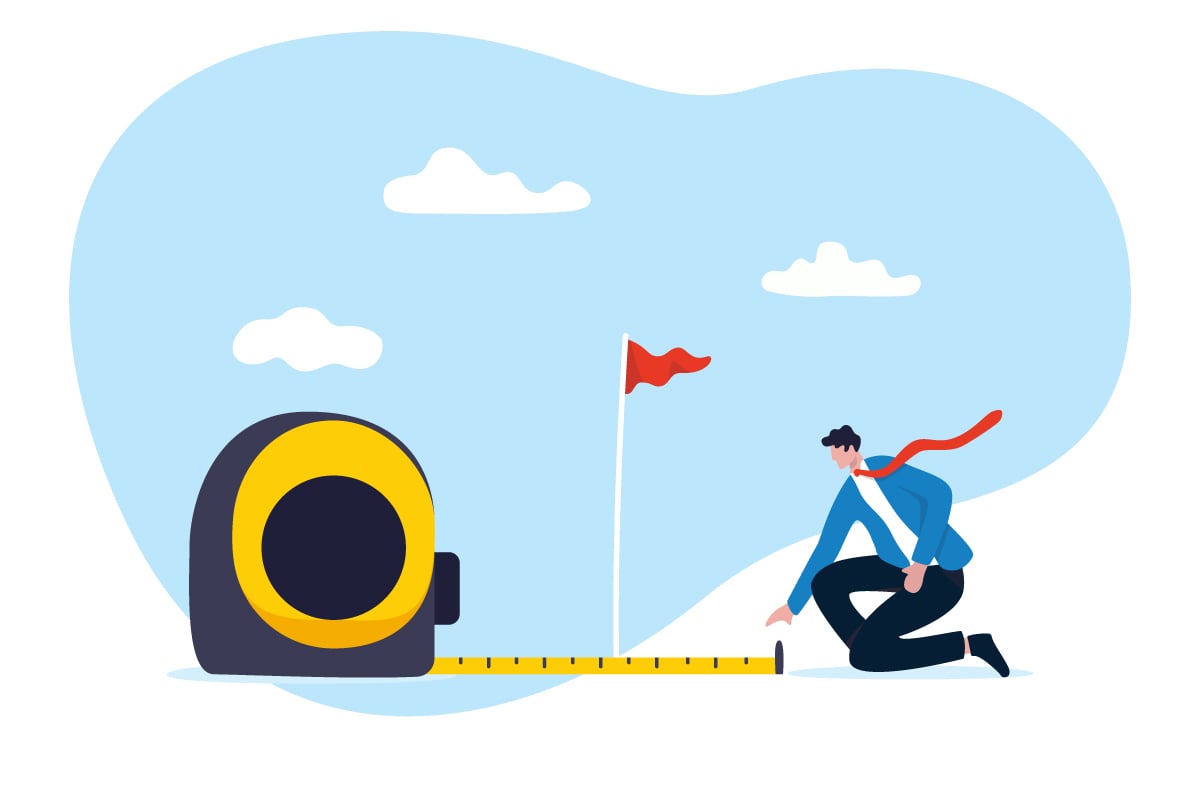The Future of Work: HR Strategies to Keep Pace with Employee Expectations
“The future of work is not about automation; it’s about augmentation. It’s about bringing together people and technology to create more meaningful,...
3 min read
 Nate Olsen
Oct 8, 2024 9:57:47 AM
Nate Olsen
Oct 8, 2024 9:57:47 AM

We're all feeling it. Inflation is a real threat, tightening margins and increasing costs across many industries.
As businesses hang on and ride the waves of price hikes, a crucial question looms: can growth survive in this economic climate?
For many CEOs, the answer feels uncertain.
According to the U.S. Chamber of Commerce[1], 88% of small business owners reported concerns about inflation in 2024, with nearly half citing it as their biggest challenge.
Yet, despite these challenges, savvy leaders are finding ways to navigate this complex landscape.
The key? Understanding the delicate balance between– cost control and strategic investment ...especially in human capital.
It's why we focus so much on Professional Employer Organizations (PEOs). They offer a lifeline for businesses seeking both stability and growth.
It's evident how critical this is for businesses that want to grow, but not all PEOs are created equal, and finding the right partner can mean the difference between turmoil and growth through times of inflation.
Inflation doesn’t just increase the cost of goods—it affects every aspect of business operations.
From payroll to benefits, supply chain issues to taxes, companies are feeling the squeeze.
Many leaders are faced with difficult decisions: cut costs, raise prices, or find a middle ground. For companies that rely heavily on talent and human resources, inflation has made the cost of retaining top-tier employees even more challenging.
Unfortunately, many businesses overlook one crucial component that can make or break their growth potential in inflationary times: their PEO.
When chosen carefully, a PEO can absorb many of the administrative burdens and rising costs that come with inflation.
From managing benefits packages that stay competitive even as healthcare costs rise, to ensuring compliance with ever-changing regulations, the right PEO is not just a safety net, but a growth catalyst.
Cost Efficiency Without Compromising Quality
As inflation drives operational costs up, maintaining efficiency becomes critical.
Many businesses struggle to balance rising employee demands for higher wages and better benefits with shrinking profit margins.
Here’s where a PEO can step in. By pooling resources across multiple clients, a PEO can offer small and mid-sized businesses access to more competitive benefits packages and lower insurance rates. This is a significant advantage in times of economic strain, where retaining top talent without burning cash is essential for staying competitive.
Expert Guidance on Workforce Management
Economic downturns put pressure on CEOs to make tough staffing decisions. Downsizing, pay cuts, or restructuring might seem inevitable, but these reactive measures can cripple long-term growth.
Instead, PEOs offer expertise in workforce optimization, helping businesses make smarter decisions without sacrificing future potential. This might mean offering flexible work arrangements, leveraging remote talent, or even using temporary staffing solutions during peak times—all while keeping employee morale high.
Mitigating Compliance Risks
Inflation often coincides with increased regulatory pressures, especially regarding labor laws and employee protections. Companies already navigating tight margins cannot afford hefty fines or legal missteps.
A PEO ensures compliance with ever-evolving employment laws, mitigating risks that could otherwise derail a company's financial stability. When CEOs can trust that their HR functions are operating smoothly and legally, they can focus on strategy and growth.
While a PEO can be a growth driver, partnering with the wrong one can be disastrous, especially in times of economic turmoil.
PEOs that don’t offer tailored services, flexible options, or high-quality customer support can exacerbate your business’s problems instead of solving them.
In times of inflation, the last thing your business needs is to be tied to a one-size-fits-all solution that doesn’t adjust to the shifting economic landscape.
For instance, some PEOs may not have the bargaining power to keep benefits costs down or might fail to adapt quickly to new compliance regulations.
Others may lack the technology to streamline payroll and HR processes efficiently.
If your PEO isn’t helping you save money and stay compliant, it’s time to reevaluate.
Yes, inflation presents a formidable challenge, but it is not insurmountable.
The right strategies, including leveraging a robust and adaptable PEO, can help your business not only survive but thrive in this volatile climate.
Now more than ever, business leaders must be forward-thinking, adaptable, and relentless in seeking out opportunities amidst economic adversity.
After all, growth during inflation is not a question of possibility—it’s a matter of strategic choice. Is your business prepared to make the right one?

“The future of work is not about automation; it’s about augmentation. It’s about bringing together people and technology to create more meaningful,...

For small business owners, time is always one of the most valuable commodities. There is never enough of it and frequently, there are simply too many...

As company leaders prepare to close the book on 2025, here’s an important question to ask: Are you sure you’re tracking the right business metrics? ...